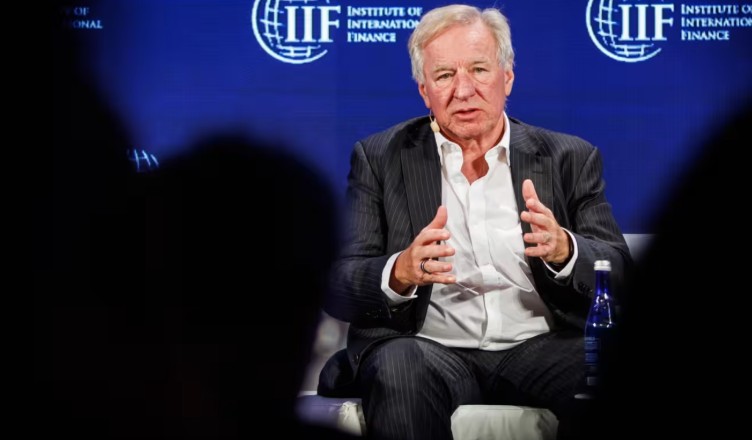Veteran financier Martin Gilbert has called on the government to overhaul the Isa system, urging ministers to restrict generous tax-free cash allowances and direct more investment into UK-listed companies.
Gilbert, who chairs fintech giant Revolut and co-founded Aberdeen Asset Management, believes the Treasury should make it compulsory for ISA investors to hold a significant portion of their portfolios in British shares.
“I’m a firm convert that we should still have the cash Isa, but it should be limited. And if the government is giving us tax relief, they may as well force us to put it in British shares, rather than [a global] tracker fund,” Gilbert told.
He went further, proposing that “at least 50 per cent” of the annual stocks-and-shares Isa allowance be channelled into UK equities. “They’re giving a tax break; they can dictate where that money goes,” he added.
A push for homegrown investment
The comments come as the Treasury weighs up potential changes to the ISA framework in the upcoming Budget.
Ministers are reportedly considering trimming the annual cash Isa limit from £20,000 to somewhere between £10,000 and £12,000, in a move aimed at stimulating investment in domestic markets.
Under current rules, savers can invest up to £20,000 each year tax-free across cash or stocks-and-shares ISAs.

These accounts remain exempt from both income and capital gains tax. Cash ISAs, however, remain the overwhelming favourite, holding around £360 billion in deposits.
To counterbalance that trend, the government is exploring ways to encourage Isa providers to offer new products that automatically allocate a portion to UK-listed firms.
Proposals under discussion include a “default” Isa model that might invest around 25 per cent into British equities, with the rest in international holdings.
Industry pushback
Gilbert’s intervention hasn’t gone unchallenged. Building societies have warned that slashing the cash Isa limit could harm their ability to fund mortgage lending, particularly for first-time buyers.
But the veteran investor dismissed those claims outright. “I think if building societies are having to rely on cash Isas, there’s something wrong with the business model,” he said.
He also argued that most of the benefit from high ISA limits accrues to the wealthiest. “Also, the portion above the £10,000 a year of cash Isas is the very wealthy; it’s a small percentage. So it’s a ridiculous argument in my opinion, we’re not saying abolish the cash Isa.”
Echoes of the past
Gilbert referenced the old Personal Equity Plans (PEPs), scrapped in 1999, which once required a set share of UK investments.
He suggested a similar model could reinvigorate London’s mid-cap and small-cap sectors, which he says are being hollowed out by overseas takeovers.
“I just hate to see the hollowing out of UK mid-cap and small-cap stocks. They’re so cheap that every week, there’s one being taken [over] by private equity,” he said.
His stance echoes broader concerns across the City that British capital markets are losing their appeal.
Matthew Beesley, chief executive of Jupiter Fund Management, backed Gilbert’s call for reform. “Anything the government can do to nudge people to invest more to secure their financial futures should be welcomed . . . More long-term money invested in British companies can only be a good thing.”
A letter signed by 250 UK business leaders this week also urged the chancellor to use the Isa system to “drive higher levels of retail investment”, citing the old PEP framework as a proven model for stimulating national growth.
For Gilbert, the message is clear: Britain needs to rebuild confidence in its own stock market. Encouraging savers to invest in local firms, he argues, could inject new life into the economy and restore London’s position as a leading hub for global capital.






